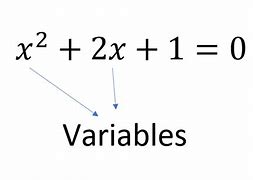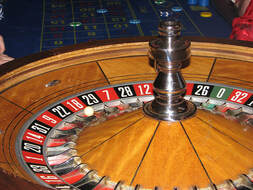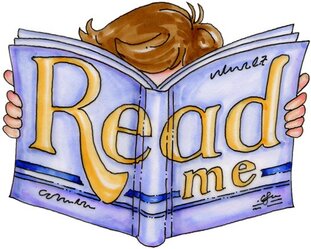 People talk a lot about the law of averages. By this they mean that if they do something enough times, there must be enough positive outcomes to balance out all the negative outcomes, to restore an average outcome at some imaginary point. This is a fallacy. It is also flawed thinking. Except in purely mathematical terms, there is no “law of averages”. For some things there are only ever negative outcomes or positive outcomes. There is no celestial balancing act between the two. The sheer number of variables in so many of life’s occurrences mean that no “average” could ever be achieved, because each one is essentially unique. People confuse the laws of statistical probability with the law of averages.  Statistical probability relies on things not changing between one occurrence and the next. If you toss a coin 100 times, for example, it should come down heads 50 times and tails 50 times. The amount of force used varies from coin toss to coin toss but, statistically there are only two possible outcomes, so the probability of one outcome vs the other is 50:50. But in most of life's occurrences, there are too many variables for statistical probability to give you a 50:50 outcome. In any occurrence the number of variables is sometimes so great that the number of possible outcomes is mind bogglingly large and there is no guarantee that any of those outcomes is going to be a positive one.  Gamblers work on a different fallacy with regard to "the law of averages". They believe that if something hasn’t happened for a while, (like the little white ball landing on certain number on a roulette wheel), then, by the “law of averages” it must happen very soon. However, where the ball lands on a roulette wheel is random (if the wheel isn’t rigged). The ball can just as easily land on the same number twice in succession as it can land on a number that it hasn’t landed on in a while. The ball hasn’t any will, so it can’t choose where it lands. The ball also has no memory, so it doesn’t know where it has landed and where it hasn’t (the same applies to lottery numbers). But the speed of the wheel, the way the croupier places the ball onto the wheel, and the point at which it is placed, are all variable, making each turn of the wheel unique.  Similarly, if a racehorse hasn’t won a race in a while, there is no reason to suppose it will win its next race. It isn’t winning races because it isn’t as fast as the other horses. It is not suddenly going to get faster, nor are the other horses suddenly going to get slower, just to satisfy some non-existent “law of averages”. A change of jockey or a change in trainer may result in the horse winning a race, but that has nothing to do with the “law of averages” because something has changed, therefore changing the likelihood of the outcome. It is the change that made the difference. Let me give you an extreme example. If you stick your hand in a fire, it will get burnt. That is a negative outcome. But there is no positive outcome. You cannot ask 100 people to stick their hand in a fire and get a negative outcome in the belief that the 101st person to do it won't get their hand burnt in order to satisfy the “law of averages”. I’ll give you another example, this time less extreme.  If a job applicant sends out their CV (resumé for our American readers) to 100 companies and gets no response, sending it out to another 100 companies does not mean that there will be a company that will decide to take a chance on the applicant, just so the “law of averages” can be balanced out by a good outcome. If a CV has been rejected 100 times, there must be something wrong with it because 100 companies are not going to reject a good candidate for a job. And so we get to the nub of this week’s blog.  When it comes to querying a book, there is also no law of averages. OK, not every agent that the MS is sent to will be the right agent for that book. A bit of research can eliminate those before the query is even sent. Also, some agents may not really be looking for new authors, so they will reject the MS and other agents may not read the submission properly and so will reject it because they didn’t “get it”. There may be other reasons why some agents reject an MS which have nothing to do with their literary merits. Who knows? But sending a query out time after time and getting the same result doesn’t mean that the law of averages says that on the next attempt you will hit the target with the right agent. If you get past a certain (unspecified) number of rejections, then it probably means that no one likes your MS and the time has come to stop sending out queries and start reviewing your MS to find out what is wrong with it. or to review your options for getting your book published. Or both. In other words, it’s not them, it’s you (or, rather, it’s your MS).  We see a lot of posts on social media with people saying they’ve sent out their MS again to another hundred agents, or direct to publishers, and this time they’re hoping for better results. If you have made over 20 queries the chance of finding an agent is actually getting smaller, not bigger because there is no law of averages. There is only an MS that agents/publishers like or one that they don’t like enough to take a chance with. Don’t take that number of 20 as being some sort of empirical threshold. It just feels about right to us. Maybe it’s 25, maybe 30, but we doubt that it’s much higher. Einstein defined insanity as doing the same thing over and over again and expecting different outcomes each time. He knew there was no such thing as a “law of averages”. So, are you displaying that sign of insanity?  In the world self-publishing this maxim also applies. If you have tried the same things time after time to sell your book and sales haven’t improved, there is only one of two conclusions you can draw. Your approach to marketing is wrong, or the book isn’t attracting readers for some other reason. If the marketing you are doing isn’t selling your book, then you have to try something new. If you always do what you always did, you’ll always get what you always got. If you want something different you have to do something different. And if you have tried something different and the book still isn’t selling, you have to look at the book itself and ask why readers aren’t attracted to it. Maybe it’s the cover image. Maybe it’s the blurb. Maybe it’s the “look inside” sample, or maybe it’s the reviews that have been posted. Maybe it’s something else entirely. But the thing it won’t be is the law of averages. If you have enjoyed this blog, or found it informative, then make sure you don’t miss future editions. Just click on the button below to sign up for our newsletter. We’ll even send you a free ebook for doing so.
0 Comments
Leave a Reply. |
AuthorThis blog is compiled and curated by the Selfishgenie publishing team. Archives
June 2025
|
 RSS Feed
RSS Feed